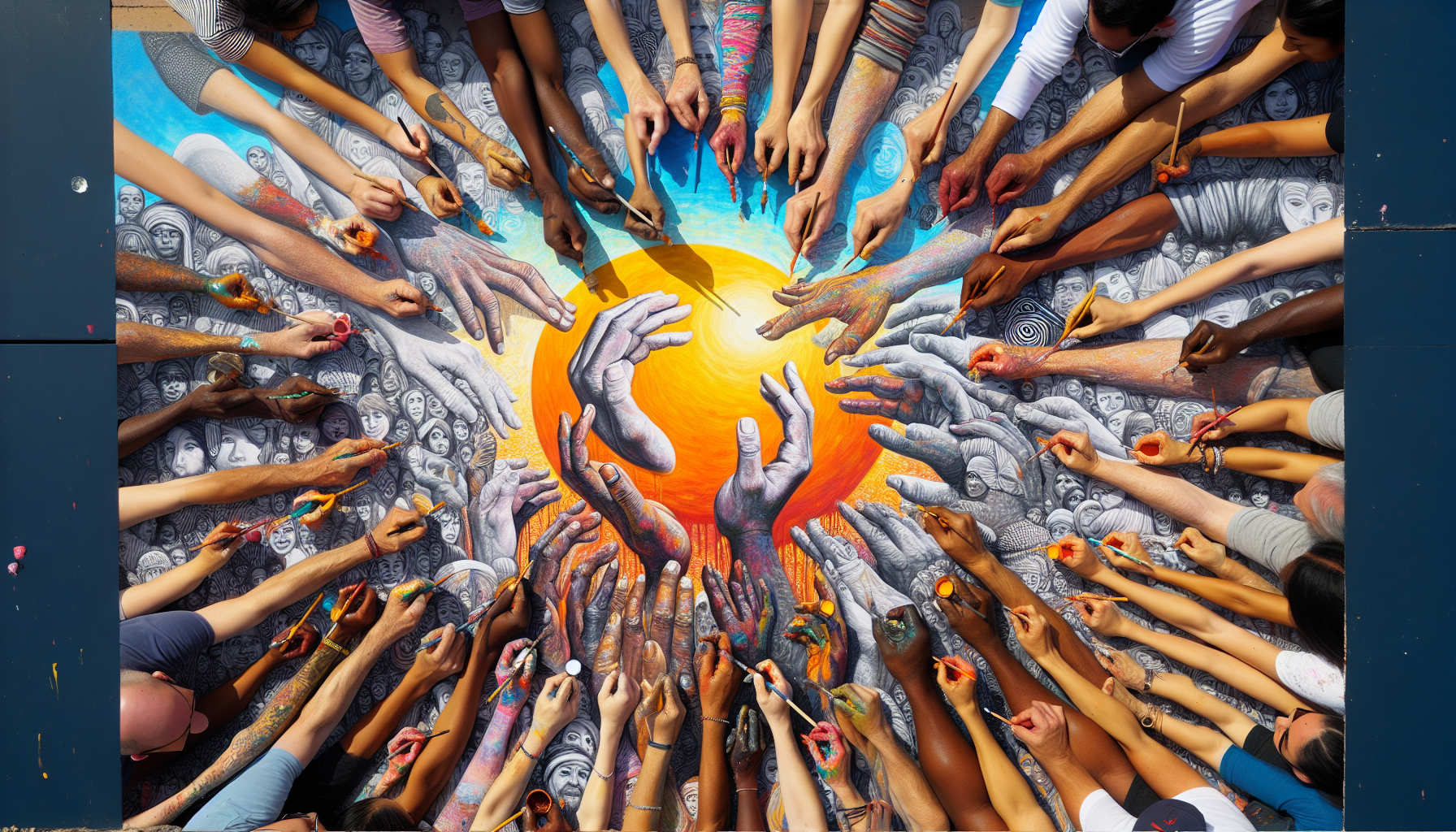The Art of Scoring: Mastering the Techniques Behind NHL Goals

The journey to becoming a prolific scorer in the NHL is not merely about raw talent; it's about mastering a set of intricate techniques that can be honed through rigorous practice and dedication. Top scorers employ a variety of shooting techniques—such as wrist shots, slap shots, and snap shots—each serving a specific purpose in different game situations.
Wrist Shots
Known for their accuracy and quick release, wrist shots are often favored by players in tight spaces or when facing a goaltender. Stars like Alex Ovechkin have perfected this technique, allowing them to find the back of the net even from challenging angles. Coaches emphasize wrist shots during practice sessions, encouraging players to develop a fluid motion that combines wrist flick and body positioning. For instance, Ovechkin's wrist shot has been a crucial element of his game, consistently placing him among the league's top scorers.
Slap Shots
The slap shot is a powerful shot that often results in spectacular goals but requires a high level of precision. Players like Brent Burns utilize this technique from the blue line, creating formidable scoring opportunities during power plays. Proper body mechanics and weight transfer are crucial to executing an effective slap shot, and players often spend hours on the ice perfecting this skill. For example, during the 2016-2017 season, Burns's ability to unleash slap shots from the point significantly contributed to his team's offensive production, demonstrating the effectiveness of this technique in high-stakes scenarios.
Snap Shots
This technique combines the speed of a wrist shot with the power of a slap shot, making it a versatile option for scoring. Players like Patrick Kane often use snap shots to take quick, unexpected shots on goal, catching goalies off guard. Training for snap shots includes drills focused on quick hand movements and shot release timing. Kane’s ability to score from various angles with a snap shot highlights the importance of versatility in a player's scoring arsenal.
Training Regimens
Beyond technical skills, the training regimens of NHL players play a significant role in their scoring ability. Strength and conditioning are paramount, as players need to maintain peak physical fitness to withstand the rigors of the season.
On-Ice Training
Players often partake in specialized on-ice training designed to simulate game scenarios. This includes drills that focus on shooting accuracy, puck handling under pressure, and situational awareness. For instance, players might practice shooting while skating at high speeds or while being closely guarded by a defender. This type of training prepares players for the intense conditions of an actual game, allowing them to perform under pressure.
Off-Ice Conditioning
Off-ice workouts are equally important, incorporating strength training, agility drills, and flexibility exercises. Many players work with trainers to develop personalized programs that enhance their shot power and overall endurance. For example, resistance training can help build muscle strength in the legs and core, which are critical for executing powerful shots. This comprehensive approach ensures that players are in optimal condition to score when the opportunity arises.
Mental Preparation
The mental aspect of scoring is often overlooked but is just as crucial. Visualization techniques, where players imagine themselves successfully scoring in various scenarios, can enhance their confidence and performance during games. Mindfulness practices are also becoming popular among athletes to improve focus and reduce anxiety during high-stakes moments. Players like Sidney Crosby have spoken about the importance of mental preparation, emphasizing that a strong mindset can be the difference between a good and a great performance.
Supporting Examples
Numerous examples illustrate how the convergence of technique, training, and mental preparation leads to scoring success. Consider the case of Connor McDavid, widely regarded as one of the best players in the league. His ability to weave through defenders and create scoring opportunities stems from a combination of exceptional skating technique, rigorous training, and a keen understanding of game dynamics. McDavid's consistency in scoring underscores the importance of all facets of training and skill development.
Another Example
Another example is the rise of young players like Jack Hughes, who has quickly become a scoring threat in the league. Hughes’s dedication to refining his shooting techniques and his commitment to off-ice conditioning have enabled him to stand out among his peers, showcasing the effectiveness of a holistic approach to scoring. His rapid ascent in the NHL underscores the evolving nature of the game and the importance of adapting to new challenges.
The art of scoring in the NHL is a multifaceted discipline that blends technical skill, physical training, and mental fortitude. By mastering various shooting techniques and engaging in rigorous training regimens, players equip themselves to excel in scoring, contributing to their teams’ success. As the game continues to evolve, so too will the methods that players employ to find the back of the net. Understanding these intricacies not only enhances our appreciation for the sport but also provides valuable insights into what it takes to thrive at the highest level of hockey. Whether you're a player aspiring to reach the NHL or a fan simply looking to deepen your knowledge of the game, recognizing the artistry behind scoring can transform your experience of this exhilarating sport.
Hockey Skills Coach
NHL teams, junior hockey leagues, private training academies
Core Responsibilities
Develop individualized training programs focused on shooting techniques, including wrist shots, slap shots, and snap shots.
Analyze player performance to provide tailored feedback and implement drills that enhance shooting accuracy and power.
Collaborate with players and coaching staff to integrate skill development into team practices.
Required Skills
Strong understanding of hockey mechanics and in-depth knowledge of shooting techniques.
Experience as a player or coach at a competitive level, ideally in junior or professional leagues.
Excellent communication and motivational skills to inspire players to improve.
Sports Performance Trainer
Professional sports teams, fitness training facilities, sports academies
Core Responsibilities
Design and implement off-ice conditioning programs that enhance strength, agility, and endurance tailored for hockey players.
Conduct assessments to monitor players' physical development and adjust training regimens accordingly.
Educate players on nutrition and recovery strategies to optimize performance and reduce injury risk.
Required Skills
Certification in sports science, strength and conditioning, or a related field.
Experience working with athletes, particularly in hockey, to improve physical performance.
Knowledge of injury prevention techniques and rehabilitation protocols.
Hockey Analytics Specialist
NHL teams, sports analytics firms, sports media outlets
Core Responsibilities
Analyze game footage and player statistics to provide insights into scoring trends and player performance.
Develop models to assess the effectiveness of different shooting techniques and training methods.
Collaborate with coaches and players to apply analytical findings to improve scoring strategies.
Required Skills
Proficiency in data analysis software (e.g., R, Python, Excel) and a strong understanding of hockey statistics.
Strong analytical skills with the ability to present findings in a comprehensible manner.
Background in sports analytics or a related field, with familiarity in hockey.
Mental Performance Consultant
NHL teams, sports performance centers, private practice
Core Responsibilities
Work with hockey players to develop mental resilience, focus, and confidence techniques to enhance on-ice performance.
Implement visualization and mindfulness techniques to help players manage stress and anxiety during games.
Conduct workshops and one-on-one sessions to address mental challenges associated with high-performance sports.
Required Skills
Advanced degree in psychology, sports psychology, or a related field.
Experience working with athletes, particularly in high-pressure environments like hockey.
Strong interpersonal skills and the ability to build trust with players.
Youth Hockey Development Coordinator
Youth hockey leagues, community sports programs, private hockey academies
Core Responsibilities
Design and oversee youth training programs focused on foundational skills, including shooting techniques and game strategies.
Organize clinics and camps to teach young players about scoring techniques and the importance of physical conditioning.
Collaborate with local hockey associations to promote skill development and participation in the sport.
Required Skills
Background in coaching or playing hockey, with a passion for youth development.
Strong organizational and communication skills to engage with parents, players, and community organizations.
Ability to create age-appropriate training materials and practices.


